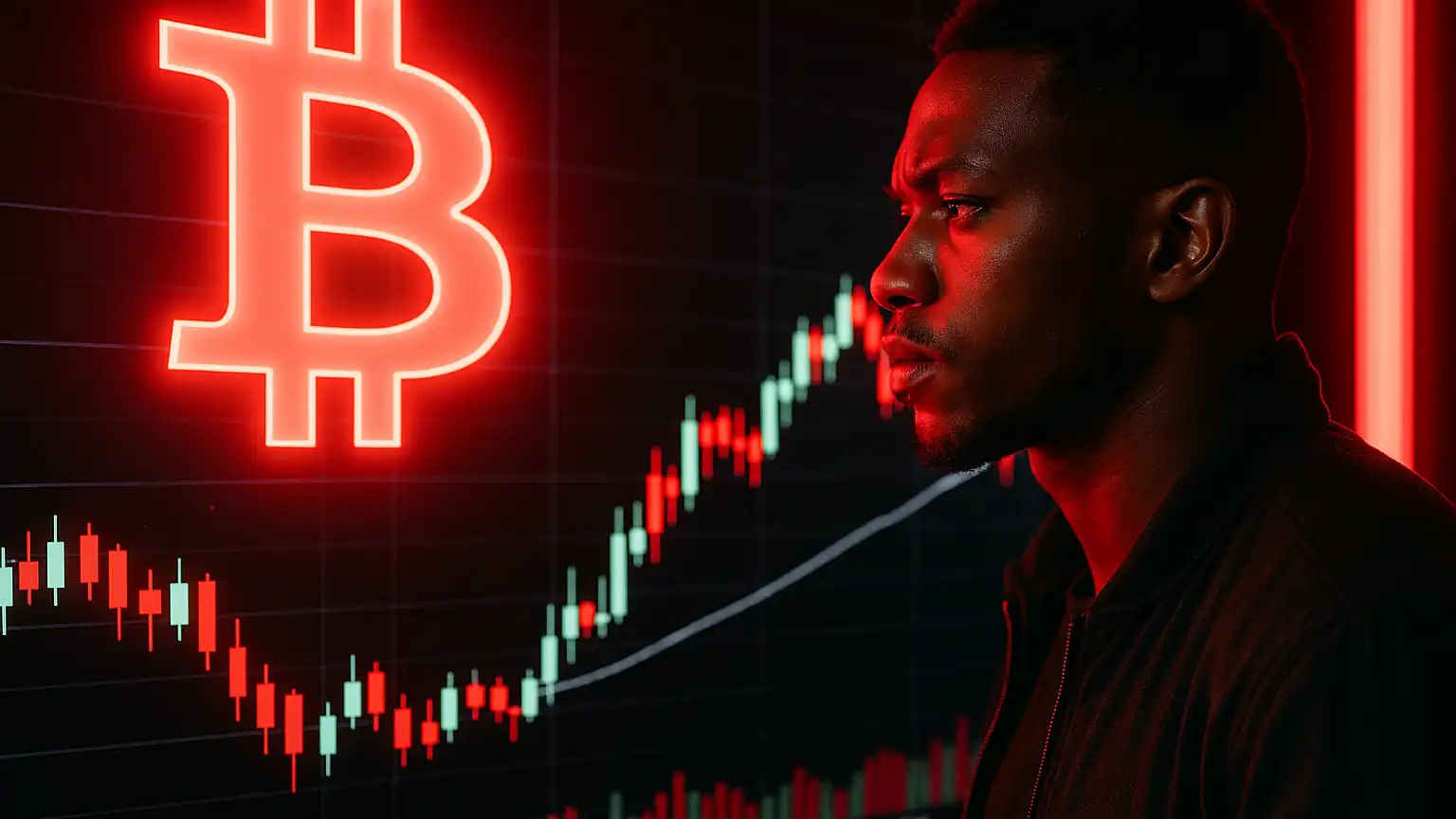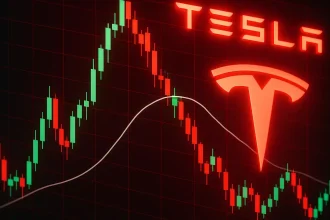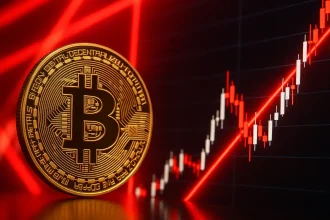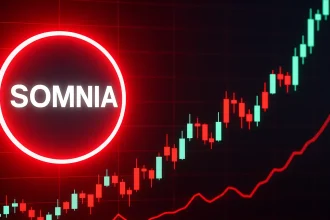U.S. Sanctions Target Iranian Cryptocurrency Transactions
On September 16, 2025, the U.S. government imposed sanctions on two Iranian financiers, Alireza Derakhshan and Arash Estaki Alivand, along with over a dozen individuals and companies based in Hong Kong and the UAE. These entities are accused of processing over $100 million in cryptocurrency derived from Iranian oil sales, channeling the funds to Iran’s government and military through front companies and shadow banking networks. The U.S. Treasury invoked a Trump-era executive order aiming to reduce Iran’s oil exports to zero and prevent its acquisition of nuclear weapons. The sanctions block access to U.S. assets and prohibit American entities from business dealings with those involved. This move is part of broader efforts to counter Iran’s use of cryptocurrency to bypass international sanctions. According to Chainalysis, sanctioned parties like Iran received $15.8 billion in crypto in 2024, amounting to 39% of all illicit crypto transactions. The sanctions also follow actions by France, Britain, and Germany to reimpose UN penalties due to Iran’s violations of the 2015 nuclear deal. Efforts to renegotiate the deal stalled after recent military confrontations involving Israel and the U.S.
UK and US Enhance Cooperation on Cryptocurrency Regulation
The UK and US are poised to announce enhanced cooperation on cryptocurrencies and other digital assets, reflecting a transatlantic alignment spurred by the US’s embrace of the industry under President Donald Trump. This development follows a meeting between UK Chancellor Rachel Reeves and US Treasury Secretary Scott Bessent, attended by key crypto firms like Coinbase, Circle, and Ripple, alongside major banks. The initiative aims to align regulatory frameworks, particularly on stablecoins, and improve UK companies’ access to US financial markets to attract more American investment. The move comes amid growing concern over UK-based companies shifting listings to US exchanges for better valuations and amid fears the UK is lagging in crypto innovation due to regulatory caution. Talks have underscored the importance of digital asset regulations and could lead to the joint creation of digital securities sandboxes, enabling cross-border blockchain testing. This push marks a major shift in the UK’s strategic approach to digital finance, aimed at maintaining global competitiveness and reducing barriers for UK firms in the crypto sector. Former Chancellor George Osborne also voiced strong support for these reforms, stressing the need for the UK to catch up with the US in this domain.
SEC Settles Lawsuit with Winklevoss Twins Over Gemini Earn
The U.S. Securities and Exchange Commission (SEC) has reached a settlement in principle with Gemini Space Station (formerly Gemini Trust Company), run by billionaire twins Tyler and Cameron Winklevoss, regarding a lawsuit over the Gemini Earn cryptocurrency lending program. The SEC had accused Gemini of not registering the program before offering it to retail investors. A joint letter submitted to the Manhattan federal court states that the settlement will fully resolve the lawsuit, pending SEC approval, with a deadline of December 15 to finalize legal filings. Gemini Earn allowed users to lend crypto assets like bitcoin to Genesis Global Capital in exchange for interest, with Gemini taking fees up to 4.29%. Genesis, which held $900 million in customer assets, halted withdrawals in November 2022 and later filed for bankruptcy. The SEC sued both Gemini and Genesis in January 2023 for failing to follow investor protection disclosures. Genesis settled for $21 million without admitting wrongdoing, while Gemini denied any wrongdoing. The settlement surfaces shortly after Gemini’s successful IPO raised $425 million, valuing the company at $3.3 billion. The Winklevoss twins are each estimated to be worth $4.6 billion.
SEC to Notify Businesses of Technical Violations Before Taking Action
U.S. Securities and Exchange Commission (SEC) Chairman Paul Atkins announced a significant shift in the agency’s enforcement approach by pledging to notify businesses of technical violations before taking action. In an interview with the Financial Times, Atkins criticized the agency’s prior aggressive tactics, which he described as unpredictable and lacking due process. This change is aimed at restoring market confidence and ensuring regulatory fairness. The SEC recently unveiled its upcoming rule-making agenda, which includes plans to revamp cryptocurrency regulations and ease burdensome Wall Street rules. Atkins emphasized that most crypto tokens are not securities and expressed interest in creating regulations that facilitate trading of tokenized securities—digital representations of shares and bonds tradable around the clock via blockchain. This policy direction reflects President Donald Trump’s pro-crypto stance and diverges significantly from former President Joe Biden’s stricter regulatory approach aimed at curbing fraud and money laundering in the crypto sector.
Bitcoin’s Price Trajectory and Market Dynamics
The cryptocurrency market is closely monitoring Bitcoin’s price trajectory, with speculation that a new all-time high could be imminent, based on historical patterns following previous halvings. Analysts are watching closely to see if Bitcoin’s price cycle deviates from its typical post-halving behavior, potentially signaling a maturing market. Another major topic is concern about Digital Asset Treasury (DAT) firms—public companies that acquire and hold cryptocurrencies. These companies are trending toward valuations equal to their net crypto holdings, losing the premium they previously commanded. If some DATs begin offloading assets, it could spark volatility in crypto markets. On the policy front, the Digital Chamber is promoting the “Bitcoin Act” on Capitol Hill, encouraging the U.S. government to retain and potentially purchase Bitcoin, a move that has both supporters and critics. This push includes high-profile participants like Senator Cynthia Lummis and several industry leaders. Additionally, former President Trump included his meme coin “TRUMP” in a $15 billion defamation lawsuit, citing harm to his business holdings. Other quick updates cover stablecoin regulation, European crypto governance conflicts, and meme coin platform Pump.fun’s surprising profitability.
Integration of Cryptocurrency in Real Estate Markets
The integration of cryptocurrency into real estate markets is gaining momentum, particularly in premium property sectors. Christie’s International Real Estate Southern California recently launched the first dedicated U.S. crypto real estate division, highlighting rising demand from digital asset holders seeking both privacy and diversification. This move follows the U.S. government’s enactment of the Genius Act, a regulatory framework for stablecoins, signaling a shift toward mainstream acceptance of cryptocurrencies. Globally, several regions are embracing crypto in real estate. Dubai has developed an advanced regulatory environment with blockchain technologies, tax incentives, and a digital dirham planned. Switzerland, especially Lugano, integrates crypto into daily life, encouraging growth in its luxury property sector. The Cayman Islands have positioned themselves as a secure, tax-efficient destination for crypto investors, with some successful real estate transactions already completed using digital currencies. Despite the momentum, challenges remain. Legal, regulatory, and compliance issues, along with crypto market volatility, slow adoption in markets like the UK. However, with frameworks evolving and institutional support growing—such as U.S. mortgage lenders considering crypto holdings—it appears crypto property purchases may soon move from fringe to feasible.
U.S. Establishes Strategic Bitcoin Reserve
In March 2025, President Donald Trump signed an executive order establishing a Strategic Bitcoin Reserve to maintain government-owned Bitcoin as a national reserve asset, along with a Digital Asset Stockpile for other cryptocurrencies. The reserve is intended to elevate the digital asset sector, responding to what Trump described as previous administration attacks. It marks a shift from a vague stockpile concept to naming specific cryptocurrencies, potentially purchased or held by the government for strategic purposes. The working group, chaired by the White House AI & Crypto Czar, is expected to provide recommendations by July 2025. The reserve will be capitalized with bitcoin already owned by the federal government. The United States is the largest known state holder of bitcoin in the world, estimated to hold about 198,000 BTC, as of August 2025.
Czech Government Faces Bitcoin Scandal
The 2025 Czech government Bitcoin scandal arose after it became public that the Ministry of Justice had accepted a large Bitcoin donation from criminal Tomáš Jiřikovský. The controversy led to the resignation of Justice Minister Pavel Blažek, who approved the donation without verifying its origin, sparking allegations of potential money laundering. The controversy centers on a donation of 468 Bitcoins, valued at approximately 1 billion Czech koruna (around 45 million USD), made to the Czech Ministry of Justice by Tomáš Jiřikovský, a convicted criminal known for operating the dark web marketplace “Sheep Marketplace,” which was used for illegal transactions. Jiřikovský was convicted in 2017 for offenses including embezzlement, drug trafficking, and illegal arms possession. After his release from prison in 2021, he sought to reclaim the Bitcoins seized during his arrest. He later donated a portion of these assets to the Ministry of Justice.
Kraken Expands Sponsorships in Sports
Beginning in March 2023, Kraken has served as the Official Crypto and Web3 Partner of the Williams Racing Formula 1 team. In October 2024, the partnership was extended through the 2025 Formula 1 season, featuring enhanced branding on the FW47 car’s halo, as well as on drivers’ race suits, helmets, and team apparel. Kraken has helped strengthen fan engagement initiatives, including the Grid Pass digital collectible program and the Rear Wing Takeover contests, which allow fans to design the car’s rear wing. Kraken continues as the presenting partner for five fan zones, offering immersive experiences for fans. In July 2024, Kraken announced that they would become the sleeve sponsor for English Premier League football club Tottenham Hotspur and Spanish La Liga club Atlético Madrid. In August, Kraken announced they would be the sleeve sponsor for German Bundesliga club RB Leipzig.
Argentina’s $LIBRA Cryptocurrency Scandal
The $LIBRA cryptocurrency scandal was a political scandal that began on February 14, 2025, when the president of Argentina, Javier Milei, promoted a cryptocurrency project called $LIBRA. The price of the meme coin spiked following Milei’s promotion but then suffered a severe price drop, leading to allegations of a rug pull scam and $251 million in losses for investors. This scandal has been dubbed Cryptogate. The Economist called it the “first big scandal” of Milei’s presidency.
World Liberty Financial’s Controversial Ties
World Liberty Financial is a decentralized finance protocol and cryptocurrency company founded in 2024. It has been noted for directly advertising its connection with Donald Trump and his family. A New York Times investigation described it as “eviscerating the boundary between private enterprise and government policy in a manner without precedent in modern American history.” It has been involved in multiple controversies regarding its conflicts of interest, alleged secret deals, and business with individuals under criminal investigation and with criminal records.
Bitcoin and Ethereum Market Update
As of September 17, 2025, Bitcoin (BTC) is trading at $117,208, reflecting a 1.17% increase from the previous close. The intraday high reached $117,303, with a low of $114,864. Ethereum (ETH) is priced at $4,545.04, marking a 0.69% rise. The day’s high for ETH was $4,552.98, and the low was $4,429.39. These movements indicate a positive trend in the cryptocurrency market, with both major assets showing gains.






